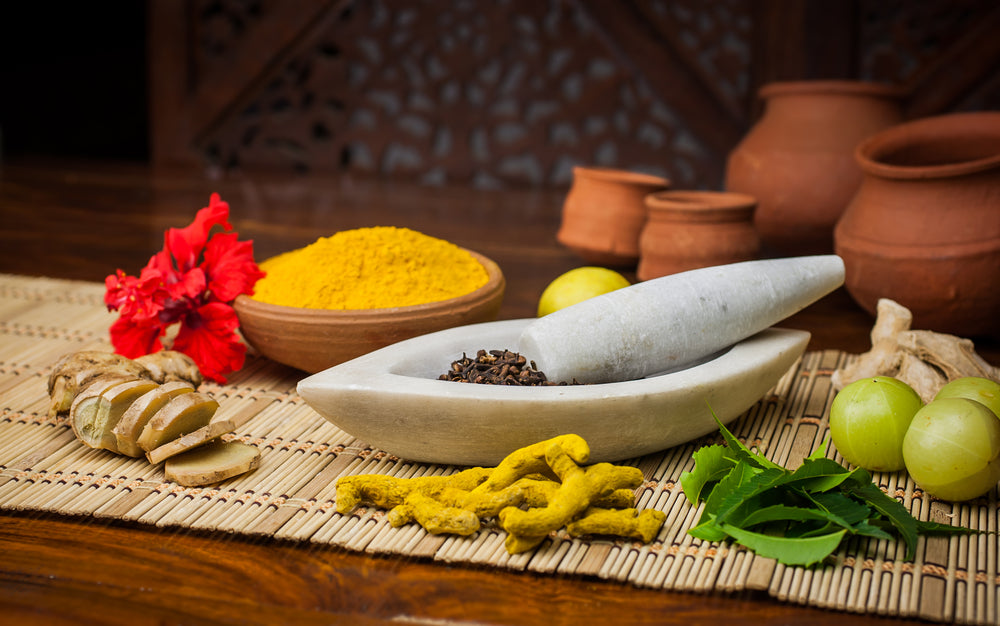Ayurveda is an ancient Indian healing system that takes a holistic approach to health and well-being. While Western medicine today plays a very important role in dealing with emergencies, Ayurveda offers longstanding solutions to many chronic disorders and the best preventive measures. Ayurveda seeks to address the root causes of disease and promote balance and harmony in the body, mind, and spirit. This system is based on the belief that we are all made up of three fundamental energies or doshas.
Tridosha is a cornerstone of Ayurvedic medicine, and it refers to the three fundamental energies that govern the body: Vata, Pitta, and Kapha. Each dosha is associated with specific functions in the body, and imbalances can lead to health problems. Vata is primarily associated with governing the various functions of the body, movements, and creativity, Pitta with digestion and metabolism, and Kapha with stability and strength. Ayurvedic practitioners use the concept of tridosha to diagnose imbalances and tailor treatments that restore balance and promote overall health and well-being. By addressing these imbalances in each individual, Ayurvedic medicine aims to eliminate the root cause of illness and prevent its recurrence. Ayurveda uses a variety of natural remedies, such as herbs, oils, yoga, meditation, and diet, to restore balance and promote the healing approach to health and well-being.

Ayurvedic medicine is gaining popularity worldwide due to its natural and holistic. Let us look at some of them in detail:
- Personalized Approach:
Ayurvedic medicine recognizes that each person is unique and hence their treatment must also be unique. Each treatment plan is tailored to the specific needs of the patient, based on their genetics, body type, personality, lifestyle, etc. Ayurveda diagnosis on the basis of Prakriti, doshas, Dushyant, etc. which determines an individual’s treatment. This approach also helps in identifying the particular characteristics associated with that particular body type. The imbalances in the body then can be treated using personalized treatments.
- Holistic Approach:
Ayurvedic medicine takes a holistic approach to health, meaning that it considers the entire person, including their physical, mental, and emotional health. Practitioners believe that when there is an imbalance in one area, it affects the entire body. Therefore, they use a combination of lifestyle changes, dietary modifications, herbal remedies, and other natural therapies to restore balance and promote overall health and well-being.
- Natural and Safe:
Ayurveda mostly uses natural remedies and therapies, which makes it a safe alternative to conventional medicine. Herbs, minerals, and other natural substances are used to treat illnesses and promote health. These are time-tested remedies that have been used for thousands of years and are generally considered safe when used under the guidance of a qualified Ayurvedic practitioner.

- Preventative Approach:
Ayurvedic medicine is based on the concept of preventing illness before it occurs. Ayurvedic practitioners use a combination of lifestyle changes and natural therapies to promote health and prevent illness. They encourage practices such as yoga, meditation, and dietary/ lifestyle modifications to maintain balance in the body and mind and hence prevent illness.
- Long-term Benefits:
The focus is on long-term benefits rather than short-term relief. Ayurveda aims to address the root cause of an illness rather than just treat the symptoms. This approach may take longer to see results (not always), but it offers long-term and consistent benefits by addressing the underlying cause of the illness and preventing it from recurring.
- Mind-Body Connection:
Ayurvedic medicine recognizes the connection between the mind and body. Practitioners believe that the mind and body are interconnected and that emotional and mental imbalances can lead to physical illness. Therefore, Ayurvedic treatments focus on restoring balance to both the mind and body, which can promote overall health and well-being.

- Wide Range of Treatments:
Ayurvedic medicine offers a wide range of treatments that can be tailored to an individual’s specific needs. This includes herbal remedies, detoxifying processes (including oil therapies, massages, etc.), dietary and other lifestyle modifications, and other natural therapies. Ayurvedic practitioners may also recommend practices such as yoga, meditation, and breathing exercises to promote overall health and well-being.
- Effective for Chronic Conditions and Autoimmune Diseases:
Ayurvedic medicine has shown effectiveness in treating chronic conditions like arthritis, diabetes, heart disease, and even autoimmune diseases. By addressing the underlying causes of these conditions, Ayurvedic practitioners provide long-term relief and improve the overall quality of life for patients. In the case of autoimmune diseases, Ayurveda focuses on rebalancing the body's doshas, strengthening digestion, and eliminating toxins using very safe herbs having immuno-modulatory effects. This holistic approach, including herbal remedies, dietary modifications, lifestyle adjustments, detoxification procedures, and stress management techniques, helps alleviate symptoms and tackle the root causes of autoimmune conditions.
- Minimal Side Effects:
Ayurvedic medicine has minimal side effects as long as it is administered under the guidance of a qualified practitioner. Ayurvedic remedies are generally considered safe and have minimal side effects when used correctly.

- Affordable:
Ayurvedic medicine is generally affordable and accessible to most people. Ayurvedic remedies are often made from natural substances that are local and widely available, which makes them more affordable than conventional medications. In many cases, the elimination of causative factors, dietary and lifestyle changes alone, or coupled with some basic easily available herbs are enough to treat a patient.
Ayurvedic medicine offers a natural, holistic approach to health and well-being that can benefit individuals seeking long-term relief and preventative care. Its personalized approach, focus on the mind-body connection, and use of natural remedies make it safe and effective. Not just supportive or alternative but in many conditions, it is the main line of treatment. Furthermore, its affordability and accessibility make it a viable option for those seeking natural healthcare. If you are interested in exploring Ayurvedic medicine, it is important to seek out a qualified practitioner who can provide personalized care and guidance.






